Wisconsin Communities Resist Similar Factory Farm Gas Deals
Read morePRESS RELEASE: $41.5 Million Mega-Dairy Biogas Project Defaults
Zahn’s Farms in Gillett, WI.
Your Custom Text Here

Zahn’s Farms in Gillett, WI.
Wisconsin Communities Resist Similar Factory Farm Gas Deals
Read moreCommunity resists plans to turn farmland into industrial dumping ground.
Read moreMary Dougherty and Lisa Doerr of Sustain Rural Wisconsin Network highlight their ongoing effort to reinvigorate local control in order to protect and preserve rural environments and ways of life.
Read more
Outside corporation wants to expand their factory farm in Western Wisconsin.
Read more
Sam Bowen (left) and her father, Ty Fisher, on Fisher Farm in Elmwood, WI.
Sam Bowen and Ty Fisher have become a formidable team committed to standing up for their rural community.
Read more

“Good farmers, who take seriously their duties as stewards of Creation and of their land’s inheritors, contribute to the welfare of society in more ways than society usually acknowledges, or even knows. These farmers produce valuable goods, of course; but they also conserve soil, they conserve water, they conserve wildlife, they conserve open space, they conserve scenery.”


I owe my introduction to the O’Dovero-Flesia farm to my quest for a seriously good hot dog. My preferred hot dog supplier, a meat market in Mellen, exited the sausage business a few years ago, and while Hebrew Nationals are a good substitute, they just aren’t the same. Everything changed when my friend Pete told me about the O’Doveros’ cattle farm and meat market—I was back in all-beef, natural-casing hot dog heaven. And, lucky for me, O’Dovero-Flesia farmstead also included dry-aged beef, the perfect pork belly for pancetta, and a picturesque collection of dairy cows, beef cattle, buildings, and pastures.
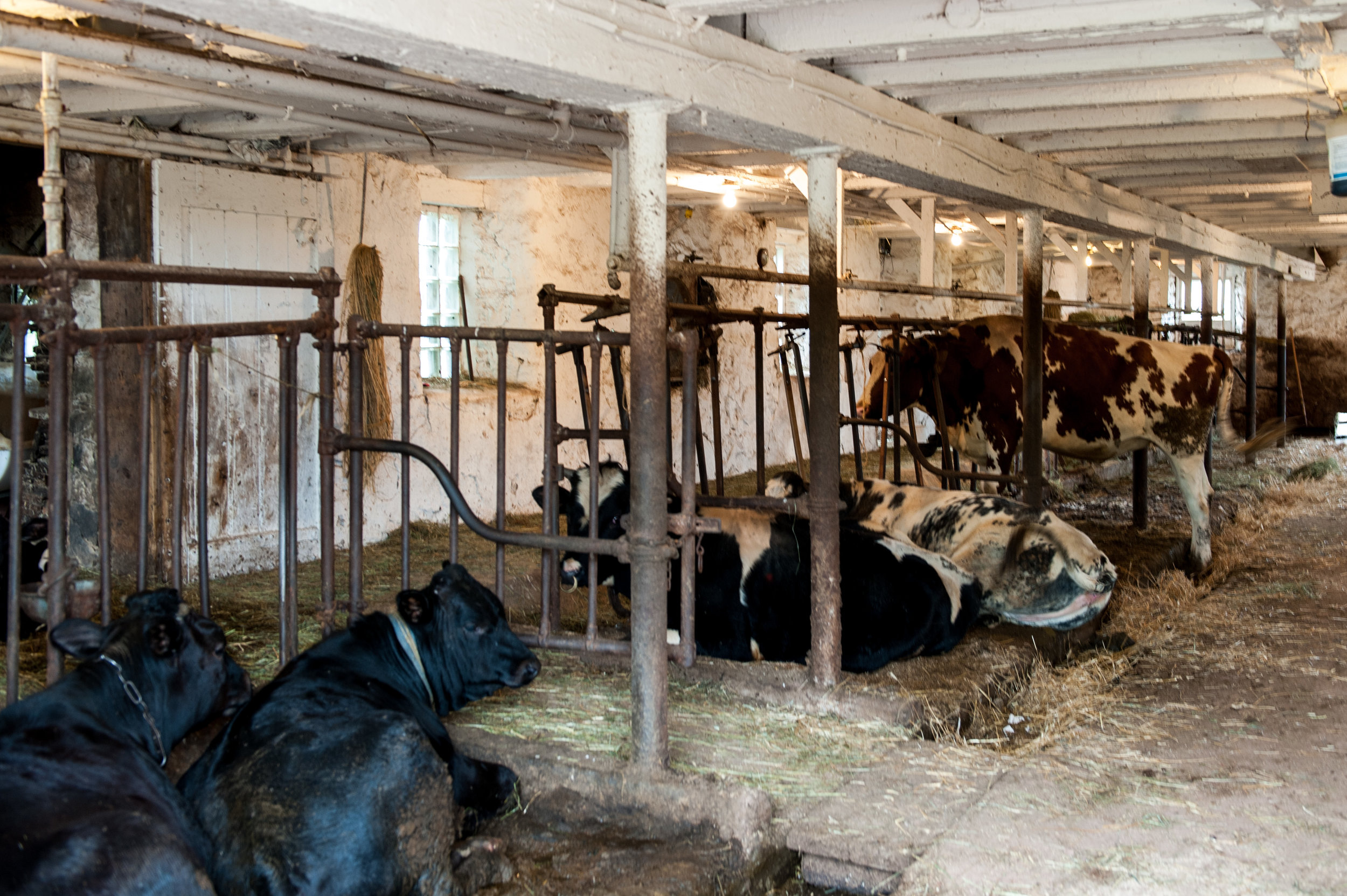


Five generations of O’Doveros have called these thousand acres at the base of the Penokee Hills home, and as I pulled into the driveway, I could understand why: it’s beautiful. Framed by a mixed hardwood and pine forest, the undulating pastures blend into the rising Penokee Hills. Two barns with fieldstone foundations (built in the late 1920s or early 1930s) wear the weathered patina of eighty-some years of Wisconsin rain, wind, snow, and sun.
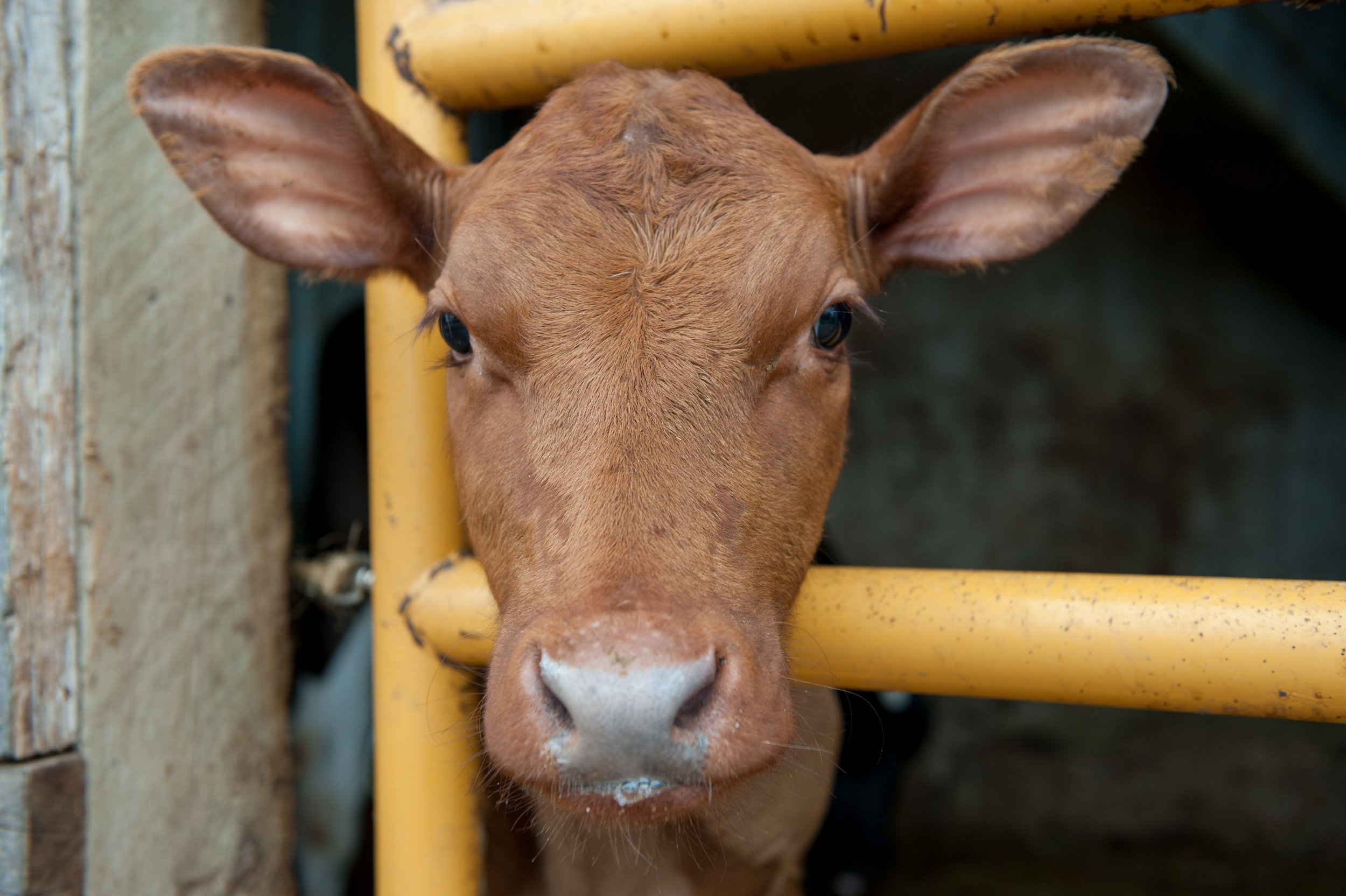


Monica Vitek, the matriarch of the clan, has the commanding presence that only years of nurturing and no-nonsense mothering can provide. Her grandparents, Emmanuel and Monica, emigrated from Turin, Italy, to Mellen in the early 1900s to work in the Mellen tannery. That business opened in 1896 and was the largest and most productive tannery in the country, in part because of the abundance of hemlock trees in the region (the tanning process relied on hemlock bark). For twenty-six years the tannery employed many Italian immigrants who came to northern Wisconsin to work and set down roots. When a new chemical process was introduced in 1922, the tannery shut down. Most of the men went to Hurley to work in the iron mines or to Kenosha to find factory work. Emmanuel, however, decided to stay in Mellen and bought the farm in 1926.


Emmanuel and Monica passed the farm to their children, who passed it to theirs, and so on down the line. The family’s stewardship and pride in the farm is evident. As I sat down to have lunch with Monica, her husband, Poppy, and their daughter, Wendy, Monica spoke of her father. She said he always told her, “You never take more from the land than what you put back, plus a little extra,” and of the 155,000 trees he planted in his lifetime to ensure the family didn’t deplete the forest.


Aldo Leopold said, 'There are two spiritual dangers in not owning a farm. One is the danger of supposing that breakfast comes from the grocery, and the other that heat comes from the furnace.' Since I am an enthusiastic meat-eater as well as a passionate animal lover, two seemingly contradictory terms, I spent some time thinking about the sacrifices inherent when we harvest, anything, for our consumption. How should we honor the harvest of any animal or crop for our dinner table? A good place to start is with mindful consumption and remembering, always, that the resources we used to grow that crop or raise that animal are not endless.


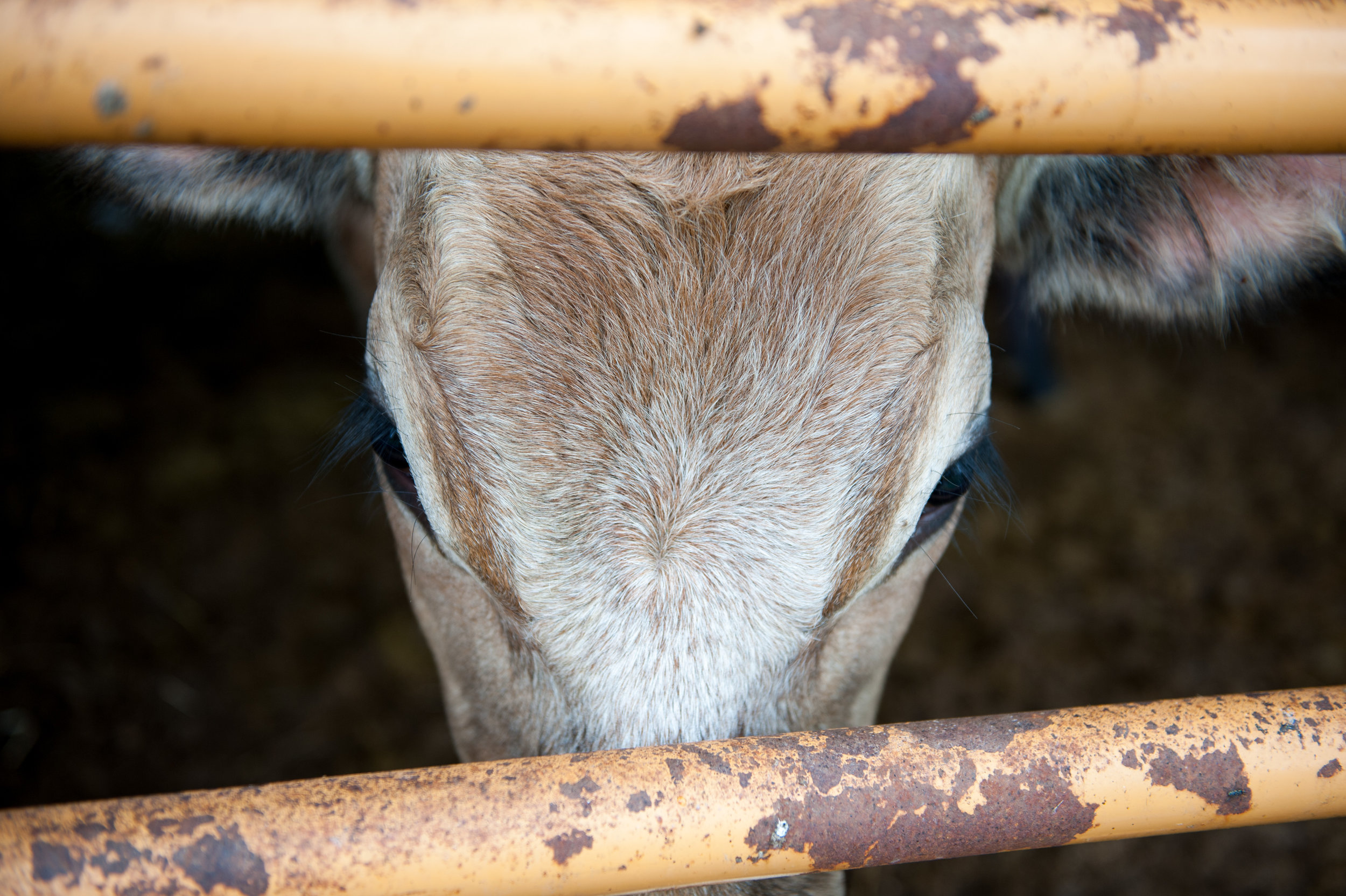
Incredibly, thanks to our disconnected and pseudo-sanitized food system, we are able to purchase a plastic wrapped package of beef with an expiration date and a price on it and think the only components of the transaction are the exchange of currency at the checkout aisle. We forget, or choose to ignore, the elemental transaction that occurred on the farm, where the cow was raised and harvested. That's why farmers like the O'Dovero's are important— they haven't forgotten and they understand the sacrifice they are asking of the animals in their care.


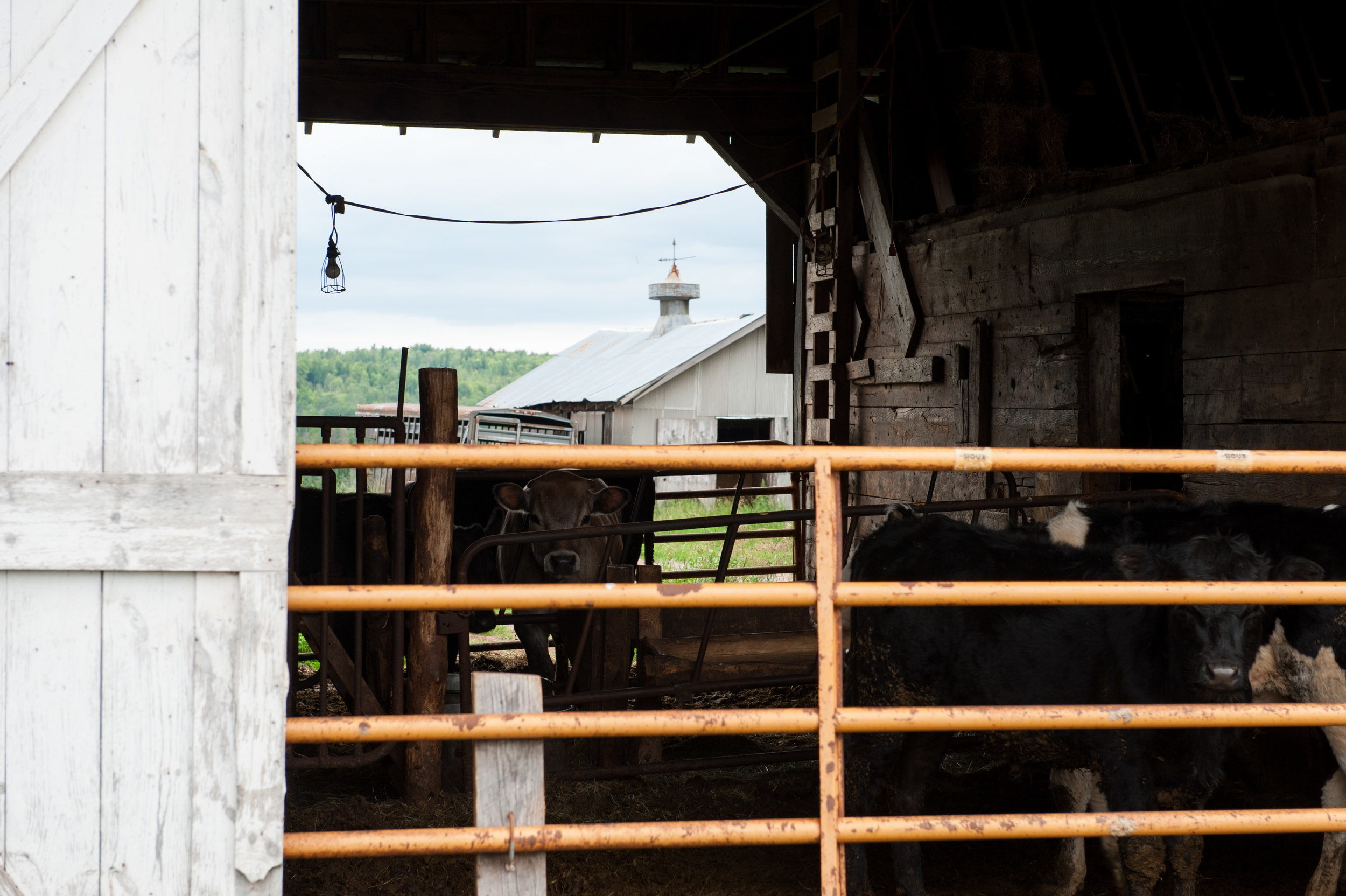
As we wrapped up our visit, we laughed about chasing heifers, cousins weeding the cornfield (after they complained of boredom), “eating your way to bed” on Christmas Eve, and stacking wood with surly teenagers. Monica offered to teach me how to make bagna cauda, a dish she made with her mother; Wendy came up from the basement with a jar of homemade antipasto from last summer’s garden; and there was a hunk of Asiago in my hands as I was leaving. Their generosity of spirit and pride in the farm they’ve called home for five generations was inspiring. The extraordinary (or not, depending on how you look at it) thing is it’s still a working farm—raising cattle and supporting a family who are rooted in this place as much as the trees are rooted in the hillside.
Family farms are a rarity in this age of agribusiness and large-scale feeding operations, and a farm like the O’Doveros’ is important. Farmers remind us that good land management practices and animal husbandry are vital to the health of a community. They are the conservationists of our time.


Want to know more about the O'Doveros? Take a look at the short film below!


“We keep each other alive with our stories. We need to share them, as much as we need to share food. We also require for our health the presence of good companions. One of the most extraordinary things about the land is that it knows this—and it compels language from some of us so that as a community we may converse about this or that place, and speak of the need.”



Laura Lee decided to come home. Back to the streams, the land, and the farm that were the backdrop to her childhood. Her decision has provided opportunities to explore what home, farming, raising a family, and living on the land means in a world where the family farmer is caught between two extremes: endless expansion or nearly certain extinction. But the question that would-be farmers like Laura are asking is this -- are the values that built the bedrock for Wisconsin's farming heritage reflected in the 'go big or go home' narrative echoing through our rural communities?

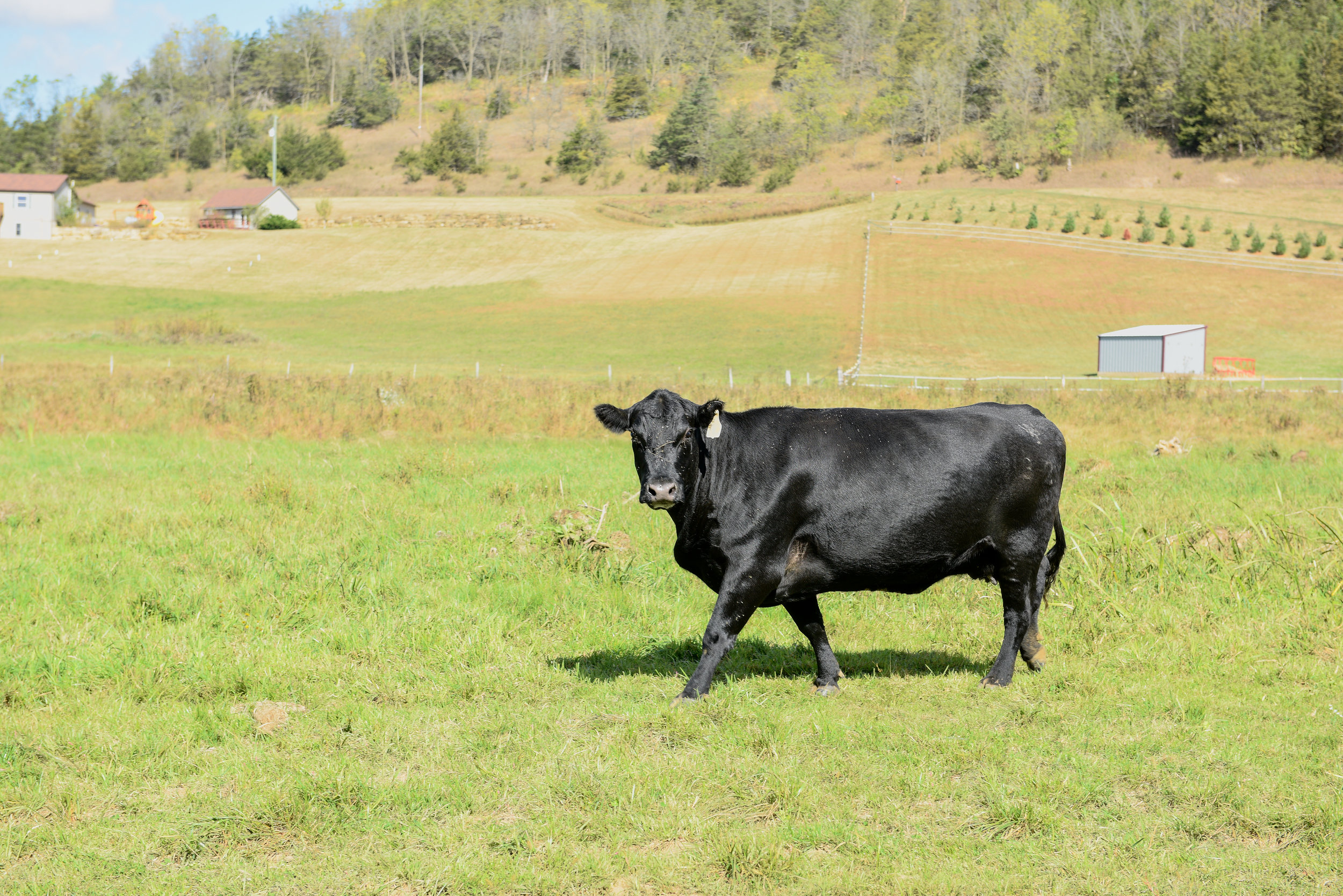


Laura, her husband John, and their three boys are the fifth and sixth generations to call these fields home. The farm is nestled into a hollow with a traditional red barn that was built by Laura's ancestors. The care and commitment that goes into maintaining such a beautiful homestead is no small thing, especially considering that Laura's Uncle John is well into his seventies and he's the sole occupant of the original farmhouse.



Albert and Bertha Dressler and their two children, Paul and Anna, came to the United States from Munich, Germany on October 28, 1882. Over the next fourteen years, they added seven more children to their family: Fred (Laura's great grandfather), Charles, Mattie, Sophia, Bertha, Albert, and Marnie. Albert purchased the land that would eventually become their farmstead in Harrison Township, Grant County in 1890.
Fred married Mary Cummins and they had one son -- Donald (Laura's grandfather). Donald and Frances had three sons: Donald, Gerald (Laura's Dad), and John. Her roots run deep on this land in Harrison Township and she intends to nourish those roots for her sons and their children.
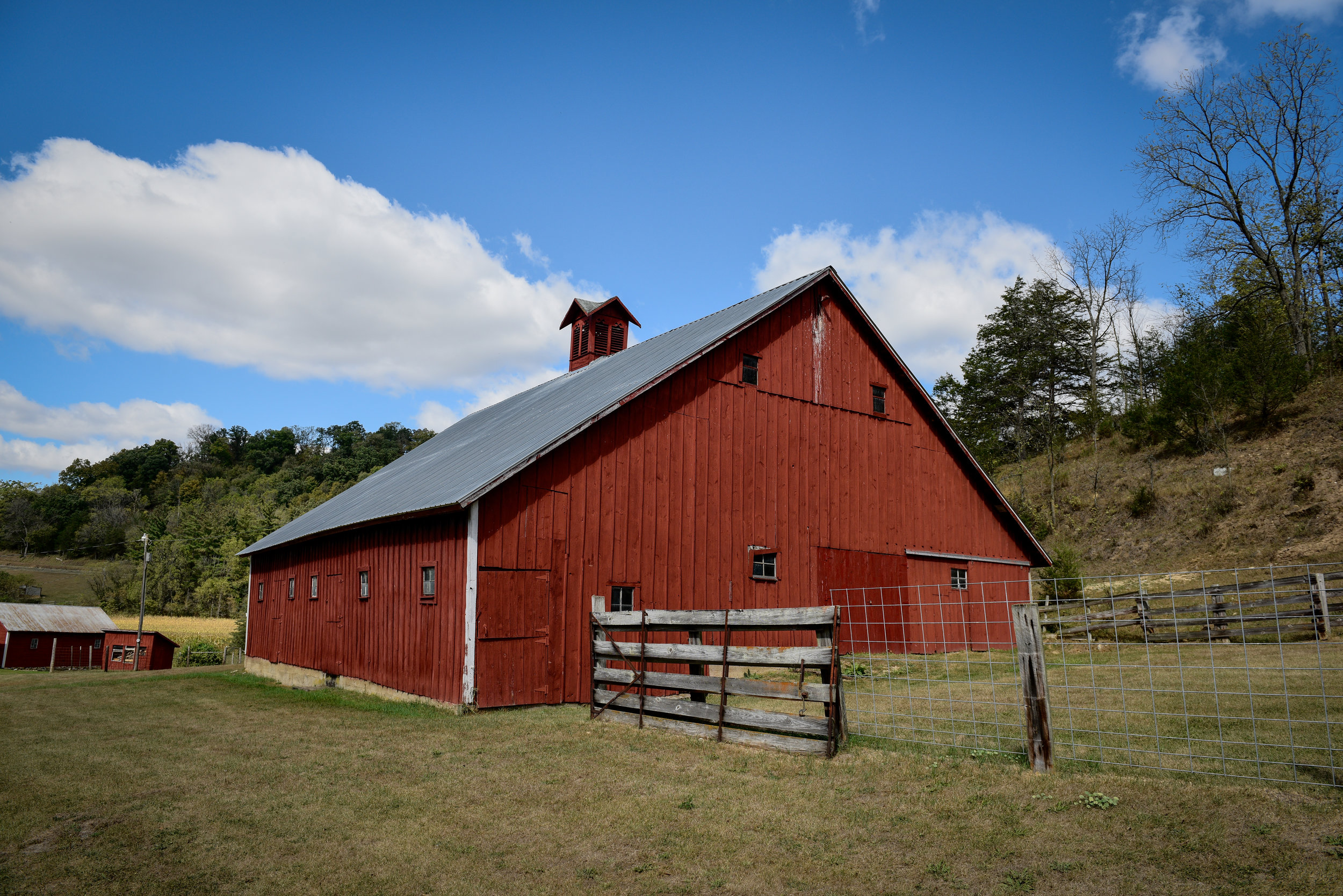


In addition to farming, Laura's great grandfather, Fred, and grandfather, Don, started Fred Dressler and Son Implement Dealer, a Minneapolis Moline tractor dealership in Platteville and had a horse breeding business. Fred and Don's legacy is tucked away into the outbuildings on the farm -- there are about 25 Minneapolis Moline tractors (down from about 40) and John was proud to share that they all are still operational....even his oldest MM tractor from the 1930's.


John admits that life on the farm is different now and it's challenging to make the old ways work in the new farming economy but he has faith that Laura and John will make it work. When he was growing up, the barnyard was full of activity and animals -- chickens, pigs, and cows but it's quiet now that he's stopped farming and Laura is finding her way back onto the farm.

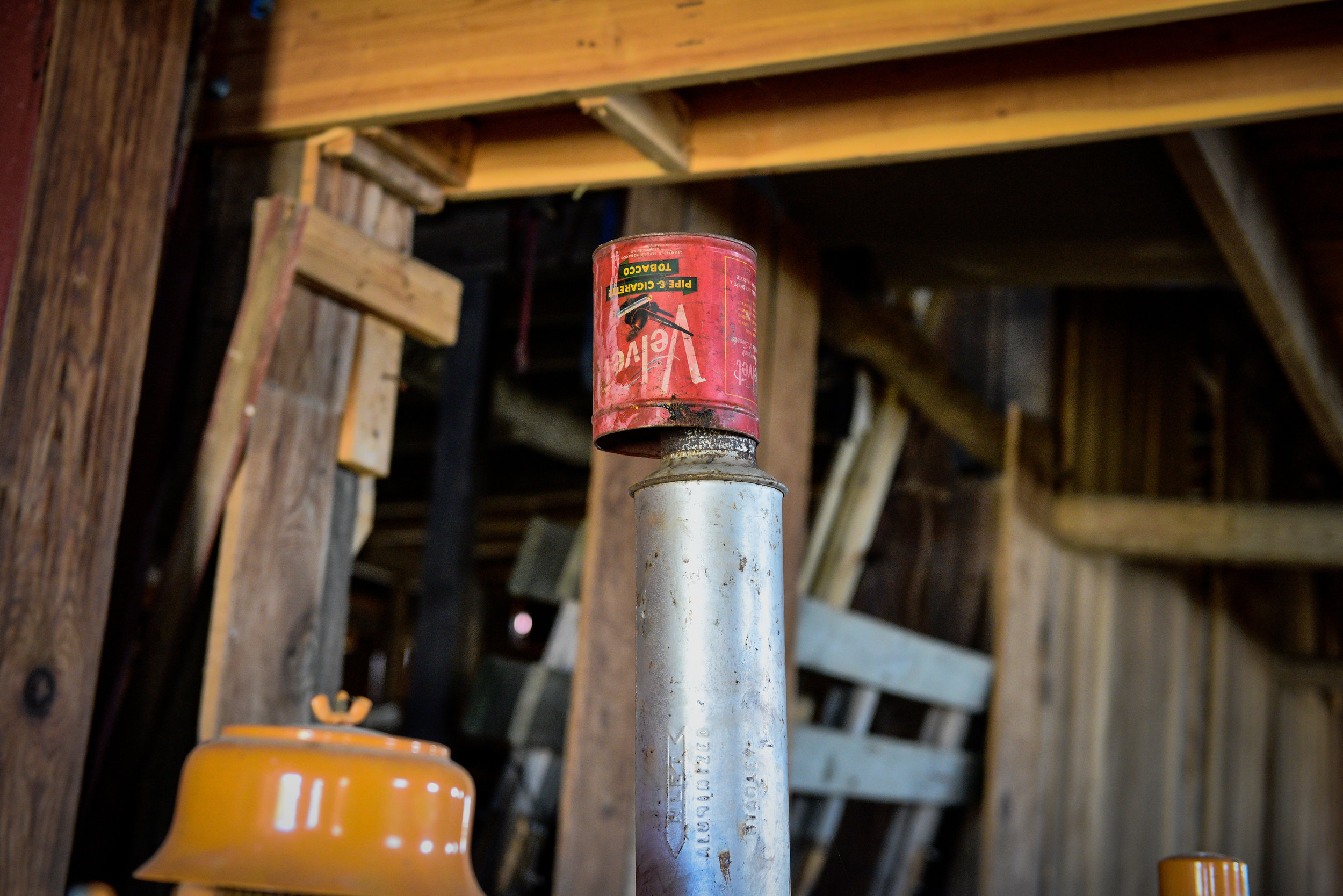
Like the family members before her, Laura is figuring out how to farm, live, raise kids, and care for the land she's set to inherit. Each generation has had to contend with balancing where they've come from and where they are headed, while working in the inevitable changes in farming methods and the rural landscape to the equation -- and Laura is no different.


In the meantime, John is providing guidance and sharing lessons learned from the land, streams, crops, and animals that have called these fields home. Laura's planning to start with chickens and vegetables, maybe adding a few hogs and sheep down the road. Laura's Dad has collected black walnuts from the property for years and she'll continue that tradition as well. There is a lot to consider and crafting a plan that works for her family and the farm is going to take some serious thought and planning. But trust me, Laura is up to the challenge!
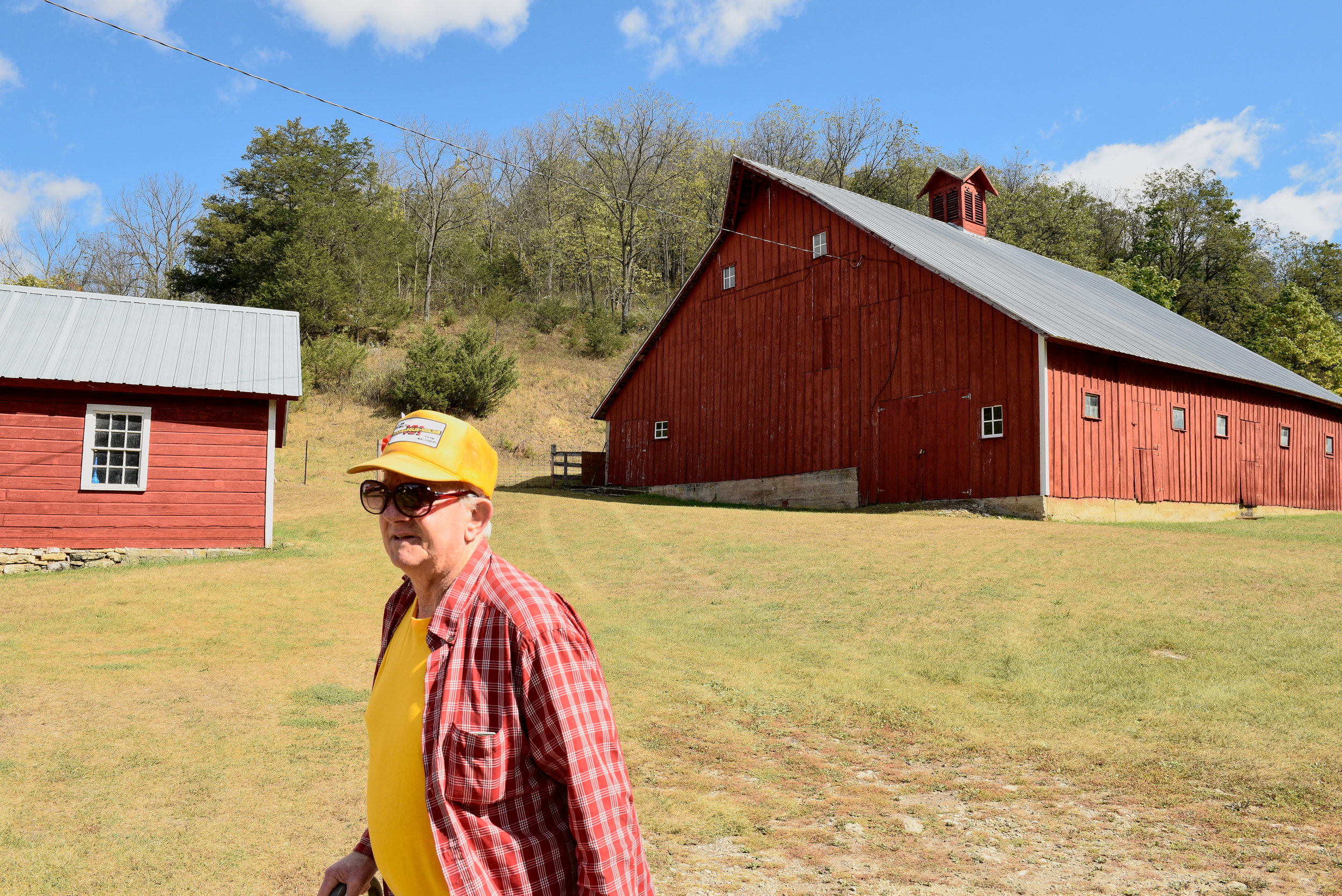

Entering the farmhouse was like walking back in time -- from the wood stove in the kitchen to the rotary dial telephone near the front door. Not much has changed since the house was constructed all those years ago; and while there have been some 'modern' 'improvements' made over the years, I bet if Laura's great-grandmother were to find herself back in the kitchen, she'd have no trouble finding the wooden spoons or the tea kettle.


There is value in preserving what you have and deciding that enough is truly enough....that modern, new, or bigger are not the answers for all farm families and finding a way to knit yourself into fabric woven by generations of your ancestors while adding your own signature drop stitch is the best way to move forward. Taking over the farm has given Laura the chance to navigate two worlds: the one that echoes with stories of her ancestors and the one that is calling to her as she begins to explore what awaits her in the barns, outbuildings, and fields of her family farm.


There are remnants of Laura's family throughout the house -- from the rocking chair that her grandmother sat in (when she would sit down!), to a painting of the farm Laura created when she was in high school, to the photos of family members long since gone but certainly not forgotten. It's a living history; one that is seamlessly woven into nearly crook and crevice of the farm.

This picture of Mary Emma Gowdy and William R "Billy" Cummins, Laura's great grandmother's parents, caught my eye in a second floor bedroom. When I asked about it, John told me that Cummins fought in the civil war in Company K of the 44th Wisconsin Infrantry Regiment. He returned home from the war and lived on an 80 acre farm in Harrison Township with their fourteen children. Our rural heritage and landscape are populated with countless stories housed in small towns, milking parlors, barns, and farmhouses. It's time we ask ourselves -- does Big Ag's unrelenting refrain of 'go big or go home' respect and honor our proud farming heritage?
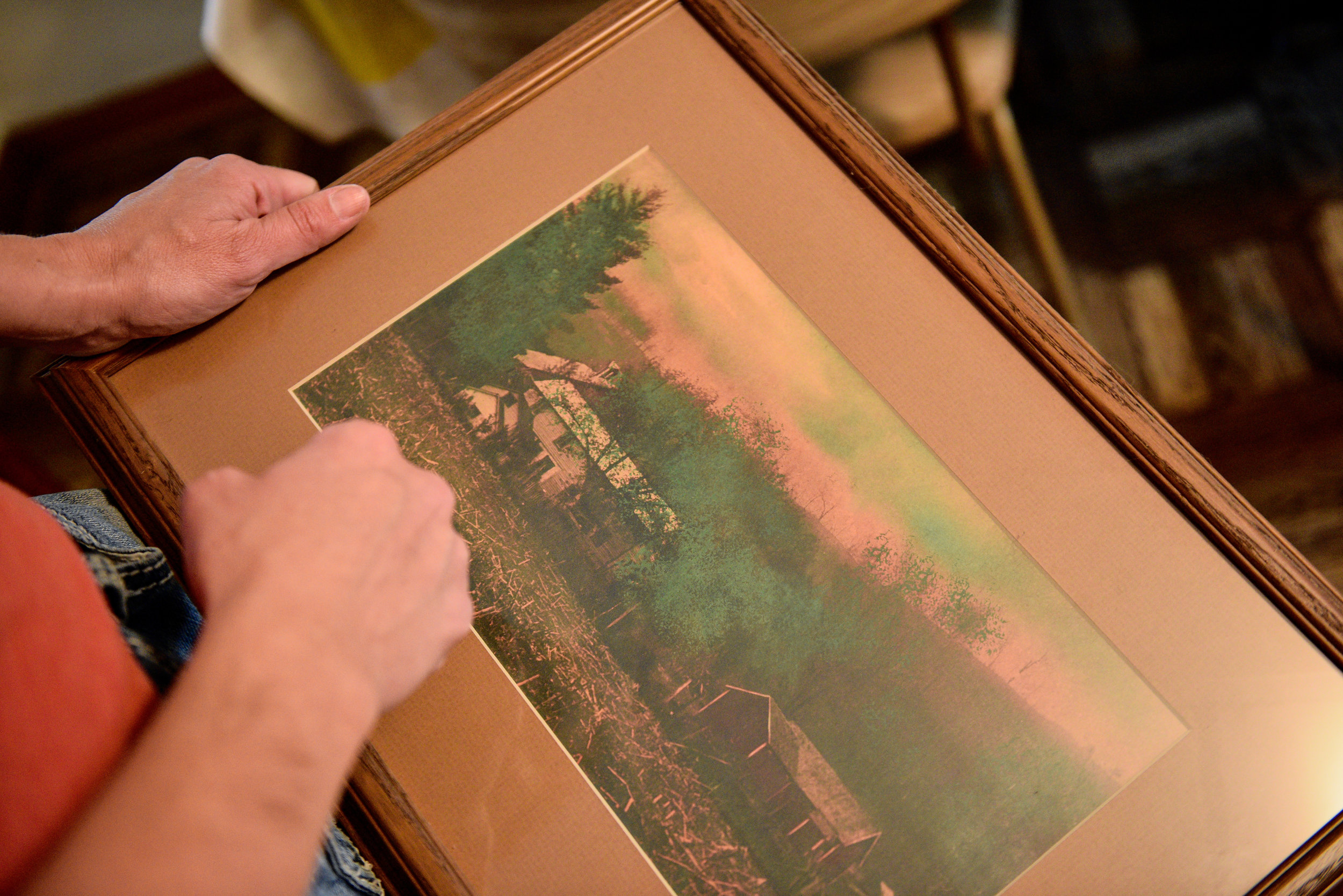
Wisconsin's rural communities are changing -- the consolidation of farms, the introduction of industrial agriculture (both crops and animals) have altered the landscape and it's up to us, the citizens of this state, to help shape the future we want to see. Do we want to see (and smell) massive industrial complexes filled with confined animals or do we want to see a thriving and diverse patchwork of homes, farms, forests, streams, and prairies across rural Wisconsin?


The work required to reclaim our farming heritage isn't going to be easy but if we draw upon the values that helped build our farms and our communities -- we'll be just fine. We need to embrace civic engagement, innovative thinking, self-reliance, and an unwavering commitment to be a good neighbor. Beginning farmers like Laura and her family belong to this land and they deserve the chance to make a life -- living and working with it.

